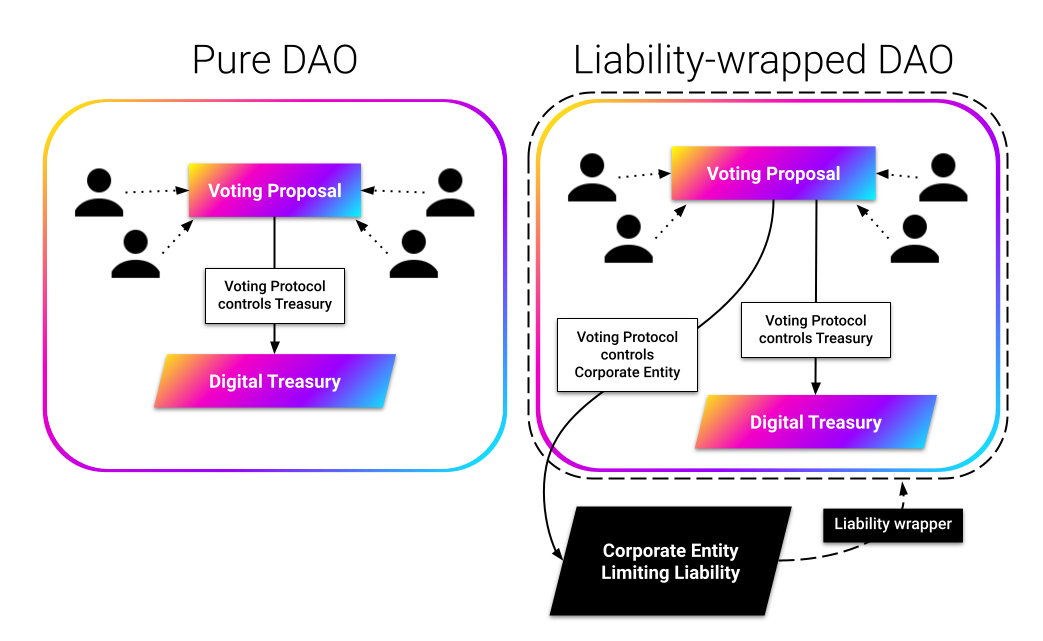
DAOs have a ‘liability problem’. In fact, they have a number of liability problems. And these problems have serious repercussions on how a DAO can compliantly provide legal and fair employment and compensation. DAOs should be free to design any contributor compensation structure which fits the mission but shouldn’t need to solve the regulatory and legal hurdles associated with those choices.
In this article, we look to identify the various liability problems of the two primary DAO models and consider a solution to these challenges.
The legal standing of DAOs
To understand the liability problems we first need to look at the legal standing of DAOs. DAOs have a murky past concerning the necessity to recognize them as legal entities. The original DAO whitepaper in 2016 states:
The legal status of DAOs remains the subject of active and vigorous debate and discussion. Not everyone shares the same definition. Some have said that they are autonomous code and can operate independently of legal systems; others have said that they must be owned or operated [sic] by humans or human created entities. There will be many use [sic] cases, and the DAO code will develop over time. Ultimately, how a DAO functions and its legal status will depend on many factors, including how DAO code is used, where it is used, and who uses it. This paper does not speculate about the legal status of DAOs worldwide.
This has led to a deeper analysis of the legal standing of a DAO, with initial work broadly delineating two schools of thought about how to structure DAOs; Pure DAOs and liability-wrapped DAOs. They both work, yet they both have their limitations. Particularly when it comes to the rights, protections, and experience of their contributors and voting members.
Pure DAOs are purely on-chain structures that have no recognition in existing legal jurisdictions, nor need of recognition to the extent that they never enter into regulated activities and never need a real-world presence.
Liability-wrapped DAOs seek to elect a legally-recognized entity with the aim of electing an entity and jurisdiction which can provide liability protection for members and the ability to transact in the real world.

We aren’t casting judgment on either model, we’re solely stating the facts of each. The market will determine the model that succeeds and that which is retired. Whether it be one of these models, a hybrid, or a completely different version entirely… time will tell.
The point we are making is thus; both models have a problem with liability that significantly impacts their contributor’s experience. Pure DAOs are unable to legally employ contributors, nor incorporate to protect contributors from being liable for the actions of the DAO. Liability-wrapped DAOs can legally employ contributors, yet the realities of being compliant within every jurisdiction that their contributors live and work in is untenable.
Find out more: https://www.theworkdao.com/